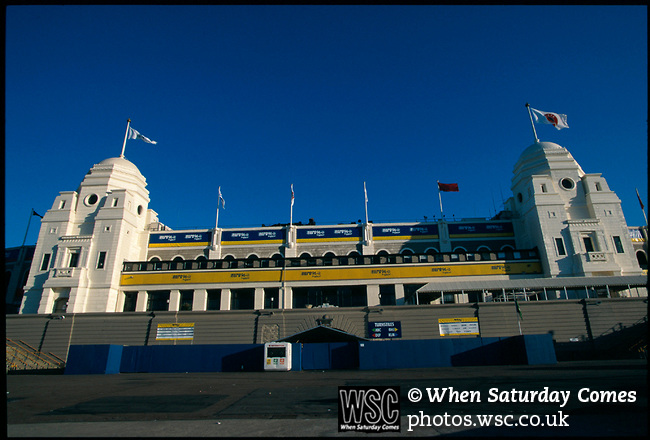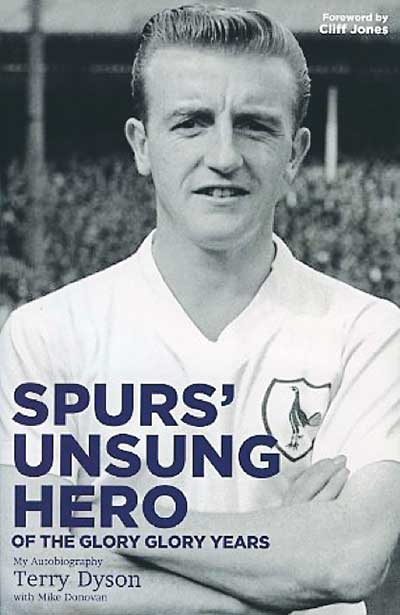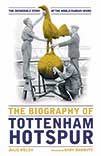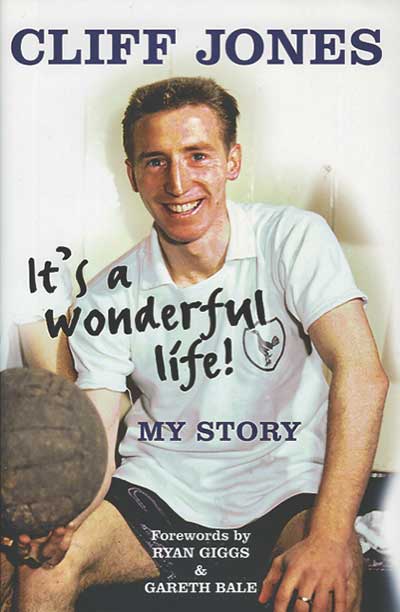
Search: ' Danny Blanchflower'
Stories
 My autobiography
My autobiography
by Terry Dyson with
Mike Donovan
Pitch Publishing, £18.99
Reviewed by Alan Fisher
From WSC 342 August 2015
“The game is about glory,” proclaim the hoardings on all sides of White Hart Lane. Before it was plundered by the marketing department, Terry Dyson was one of the creators of Tottenham Hotspur’s proud heritage. In 1961 Spurs became the first team since 1897 to win the Double, with 11 straight league wins at the start of the season. Two years later they were the first British team to win a European trophy, the Cup-Winners Cup. Dyson is one of the lesser-known stars of a team managed by Bill Nicholson that included Danny Blanchflower, the indomitable Dave Mackay, Cliff Jones, Bobby Smith and perhaps the best of them all, “the Ghost” John White (who was killed by lightning on a golf course in 1964).
Born in Scarborough where his father was a well-known but impoverished jockey, Dyson was spotted in 1954 playing for the army during his national service. Over the next decade he made 244 appearances for Spurs as a hard-working little left-winger, scoring 68 goals including two in his finest match, the 5-1 Cup-Winners Cup final victory.
Much of the book is understandably taken up with the Double season, rich with insider detail and anecdotes on a game-by-game basis that will fascinate Spurs fans, while the less committed reader can’t help but be swept along by Dyson’s enthusiasm and growing sense of destiny. However, the abiding impression is one of humility, a simple delight in playing good football with team-mates he liked, admired and respected. His description of soft-voiced conversation and calm satisfaction in the Wembley dressing room after the Cup win to seal the Double is typical and evocative, striking for its lack of brazen celebration even though they were perfectly entitled to let go. Nicholson was genuinely upset that the team had let themselves down because their performance was below their best.
Dyson played in a very different era, being paid £40 in weekly wages even after the season’s other momentous event, the abolition of the maximum wage. He lived locally in digs with the same family for ten years and drank after matches with the fans in the Bell and Hare pub next to the ground. He bemoans the separation between supporter and player that is the norm today. However the most telling sign of different times is that the editor felt the rules of Dyson’s favourite playground game, conkers, had to be explained in detail to an apparently bewildered readership.
Yet in many ways this was an entirely modern team. The cheerful Dyson recounts how he and his team-mates talked football incessantly, supporting each other on and off the pitch. Contrast Gary Neville’s recent criticism of the lack of on-field intelligence and problem-solving in the English game.
Later in his career Dyson played for Fulham and Colchester, then managed in non-League and coached in local schools. Spurs fans of all vintages will revel in this account of a man who was part of a team contemporaries called the finest of all time yet who remains humble. Now a sprightly 80 the stories he is able to tell allow Terry Dyson to step into the limelight.
 by Julie Welch
by Julie Welch
Vision Sports, £20
Reviewed by Alan Fisher
From WSC 314 April 2013
The Twitter hashtag #againstmodernfootball is hardly a scientific dissection of the faults of the modern game but it has become an outpouring of genuine frustration and growing disenchantment: exorbitant ticket prices, alienated and marginalised fans, an obsession with the here and now and instant success. Julie Welch’s Biography Of Tottenham Hotspur is not only a revealing insight into the club, it could well restore your faith in football.
Welch traces the development of the club’s character and personality, showing there is more to a football club’s history than a list of players, matches and trophies. Her beloved Danny Blanchflower’s statement that it’s not just about winning, it’s about glory and doing things in style, articulates a culture and identity that dates back to the club’s formation in the 1880s, when three schoolboys met under a lamp-post 100 yards from the current ground.
Harry Redknapp and André Villas-Boas come from different schools of management but both talked of the need to play good football the Spurs way. Arthur Rowe’s pioneering “push and run” won a League title in 1951. He was influenced by another innovator, Peter McWilliam, Spurs boss in the 1920s, and in turn inspired the incomparable Bill Nicholson to bring unparalleled success in the 1960s and early 1970s. The familiar mixture of flamboyance and exasperation, the sublime and erratic, would be instantly recognisable to successive generations of Spurs fans.
We deny history at our peril. Alan Sugar saved the club but he understood the balance sheet better than his heritage, hence the crushing mediocrity of the 1990s with Christian Gross, Gerry Francis and George Graham. Then again, there’s nothing new under the sun. Financial crises, businessmen wanting to profit by moving the ground, an ability to snatch defeat from the jaws of victory: any decade at Spurs, not just the last one.
Welch is an author and screenwriter, the first woman football reporter in Fleet Street to have her own byline. She is a beguiling storyteller who tells the tale with a curiosity and style that sweeps the reader along. The air of artistry and magic seduced her as a schoolgirl but it’s not quite right to suggest they entice fans these days. Peer pressure, family ties or blind accident are more common factors. However once committed it keeps us there, becoming part of who we are.
The nature of Spurs’ identity as a Jewish club is the only omission, perhaps because although it’s an independent publication, unusually the club have co-operated and are shy of potential controversy. The absence of statistics and tables may dismay lovers of detail, who will point to several proof-reading errors.
It’s a beautiful book, wonderfully written, that is essential for Spurs fans and deserves to be widely read because it is about perspective, culture and identity, precious to fans everywhere yet under attack. Read it and I defy you to tell me that finishing fourth in the Premier League is what truly matters.
 Footballers appearing on Desert Island Discs is a fairly rare occurance. Paul Brown examines what the lucky few chose
Footballers appearing on Desert Island Discs is a fairly rare occurance. Paul Brown examines what the lucky few chose
WSC is not alone celebrating a big anniversary this year. Desert Island Discs, the enduring radio fixture in which celebrity castaways get to choose eight favourite records, plus a book and a luxury item, is building up to its 70th birthday.
